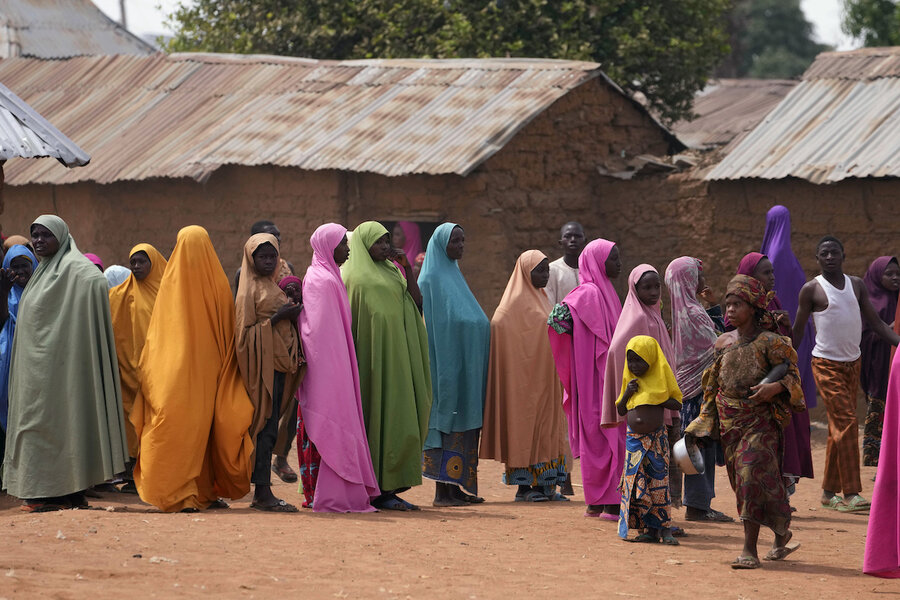Kidnapped students safe and in high spirits. But Nigeria still has an abduction problem.
Loading...
| Kaduna, Nigeria
More than 130 children abducted more than two weeks ago from their school in Nigeria’s northwestern state of Kaduna were rescued March 24 and are getting psychological support before being returned to their families, the West African nation’s military and government officials said.
School authorities had told the state government that a total of 287 students were kidnapped when motorcycle-riding gunmen invaded the remote Kuriga school March 7. However, Kaduna Gov. Uba Sani told local media late March 24 that only 137 young people had been abducted during the attack.
“All of them have come back home safely,” the governor said in a broadcast by the Lagos-based Channels Television. The Associated Press could not reach villagers or school authorities in Kuriga town, which does not have cellphone service.
Such varying reports are common in Nigeria’s kidnapping crisis, sometimes because of inadequate recordkeeping or because some hostages escape moments after their abduction.
“As the leader, I shouldn’t bother myself about figures. What is more important is the return of the children,” the governor said.
At least 1,400 students have been kidnapped from Nigerian schools since 2014, when Boko Haram militants seized hundreds of schoolgirls from Borno state’s Chibok village. In recent years, abductions have been concentrated in the country’s northwestern and central regions, where dozens of armed groups often target villagers and travelers for ransom.
The 137 children were rescued in Zamfara state, an enclave notorious for kidnappings more than 200 kilometers (124 miles) away from their school, Nigerian military spokesman Maj. Gen. Edward Buba said in a statement.
Pictures released by the Nigerian military showed the children looking worn out as they were covered in dust, still wearing their blue-white-and-brown uniforms while being transported following their release. Kuriga town leaders joined other government officials in waiting for their arrival at the Kaduna State Government House, which officials postponed until March 25.
The children were in “high spirits” and were receiving psychological support and medical attention, the governor said.
At least 17 other schoolchildren in northern Sokoto state were also rescued two weeks after they were taken hostage, according to a statement issued March 23 by the Sokoto state government.
Under growing pressure to end the mass kidnappings in northern Nigeria, President Bola Tinubu promised his administration is “deploying detailed strategies to ensure that our schools remain safe sanctuaries of learning, not lairs for wanton abductions.”
Mr. Tinubu had vowed to rescue the children “without paying a dime” as ransom. But ransoms are commonly paid for kidnappings, often arranged by families, and it is rare for officials in Nigeria to admit to the payments.
No group has claimed responsibility for the Kaduna kidnapping, which locals have blamed on bandit groups known for mass killings and kidnappings for ransom in the conflict-battered northern region, most of them former herders in conflict with settled communities.
At least two people with extensive knowledge of the security crisis in Nigeria’s northwest told AP that the identity of the abductors is known.
Murtala Ahmed Rufa’i, a professor of peace and conflict studies at Usmanu Danfodiyo University, and Sheikh Ahmad Gumi, a cleric who has negotiated with the bandits, said they were hiding in the region’s vast and ungoverned forests.
Arrests are rare in Nigeria’s mass kidnappings, as victims are usually released only after desperate families pay ransoms or through deals with government and security officials that sometimes involve the release of detained gang members.
This story was reported by The Associated Press.







